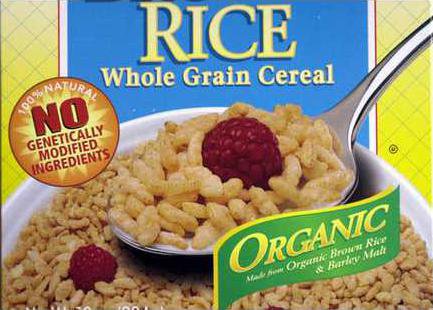The state of Vermont will soon be mandating that genetically modified foods — any plant or meat product that has had its DNA manipulated in a laboratory, also called a GMO — be labeled as such. The law, officially titled H.112, passed last Thursday and is the first in the United States to require the labelling of GMOs. It has attracted both public support and condemnation and raised the question as to whether the public needs GMOs labeled or not.
Proponents of GMOs argue that modified foods are completely safe for consumption and often beneficial. "These same GM crops have enabled farmers to produce more on less land with fewer pesticide applications, less water and reduced on-farm fuel use," BIO Vice President Cathleen Enright said in an official BIO statement on the ruling in Vermont.
Even beyond responsible land use, says David Ropeik of the Huffington Post, antagonism towards GMOs has resulted in needless deaths. Ropeik wrote about golden rice, a GMO designed to fortify regular rice with vitamin A. Due to GMO opposition, the rice was never distributed.
Ropeik then cites an article published through Cambridge University which estimates that if distributed, golden rice could have saved 1,424,000 life years in India since 2002, with life years covering not only premature deaths but also lives with disabilities brought on by vitamin A deficiencies, such as blindness.
“These are real deaths, real disability, real suffering, not the phantom fears about the health effects of golden rice thrown around by opponents,” said Ropeik. “Opposition to this particular application of genetically modified food has contributed to the deaths of and injuries to millions of people. The opponents of golden rice who have caused this harm should be held accountable.”
However, many proponents of GMO labeling argue that they are not opposed to GMOs themselves, just the lack of information surrounding them.
“GE crops have entered the U.S. food supply at an increasingly rapid pace over the last 16 years,” according to the Just Label It activist website. “Studies show that an overwhelming majority of Americans support labeling GE foods — more than nine out of ten voters across all demographics of party afliation, gender, age and socioeconomic status. Yet, for 20 years they have been denied that right.”
Others believe that GMOs are not as safe as they have been advertised to be, and the health information surrounding them has not been studied enough for any conclusive results.
“Some animal studies have found that genetically engineered foods may cause liver, kidney and bone marrow problems,” according to Deborah Pike Olsen on the Consumer Report website. “There are also concerns that these products may introduce new allergens into the food supply.”
Should the government tell us what's in our food?





